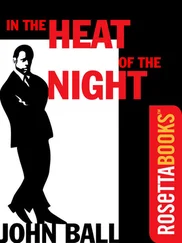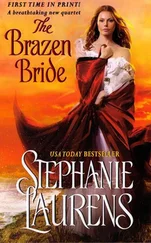It was at that moment that a flickering torch became suddenly visible, carried round a sharp corner of the passage they were following, and the long, narrow, cadaverous countenance of Sir Mort Abyssum, Lord of the Manor of Roque, made its appearance.
“What in the name of all the angels and of all the devils has been happening to you two?” cried the apparition, as it advanced towards them entirely alone and holding in one hand the torch, now quite useless for there were plenty of lights in the passage now, and in the other a naked sword.
There sometimes arise moments in the lives of men upon earth when there is no human power or human art or human skill, whether of painter or sculptor or musician or poet or tale-teller, that could possibly do what Aristotle called “imitate nature”, or what Goethe called “realize the intention of nature”, or what Shakespeare and Rubens did without thinking of what they were doing.
On these occasions certain human figures make their appearance where and when there is no onlooker, no observer, no audience, no witness that is possessed of the faintest or remotest understanding of what is being presented to its attention. Its own nature has rendered this awareness as oblivious as fire to water, even when it is about to be put out by it, and as earth to air even when it is about to be dissolved into it. The human figures who thus appear and make not the smallest, faintest, weakest, slightest impression might be described as appearing in a complete void. There is for them, when they appear, a total absence of every conceivable recording and of every possible reflection or memorial.
It was in such a void that the long, narrow, hollow-eyed, hollow-cheeked, ghastly-white visage of the Lord of the Manor of Roque manifested itself on this occasion. But all the same had there been any truth — and perhaps there was some truth — in the discovery by the ex-bailiff of Roque of the semi-consciousness of certain inanimate elements, these walls of the passage between the dung-yard and the dining-hall of that place would have recorded the appearance of a human figure and a human face that seemed to be crying out to the whole universe, from the deepest pit of Hell to the highest peak of Heaven, a protest against life having been created, or having created itself, or having been brought about by chance, after the accursed manner we all know so well.
A few days after the departure of those disturbing visitors to the Fortress heralded by Spardo and his deformed horse, Roger Bacon in his attic prison in the Priory of Bumset was at work on his Opus Tertium . He was seated on a high-backed chair with a well-stuffed black cushion under his buttocks and all his writing materials conveniently before him. These included some specially adaptable pages of parchment cut carefully into folio size and studiously covered with straight lines to guide the writer’s pen, save where at certain premeditated places on the page these lines came to an end in order to admit of the insertion of large illuminated capital letters in every shade of colour and designed with every sort of fanciful decoration.
The famous Friar, a beardless, clean-shaved man, gave the impression at first sight of a sedentary person of high rank who might easily have been himself the Prior of Bumset, or rather perhaps, for his air and manners were not entirely ecclesiastical, some highly placed secular lawyer from old King Henry’s court in London. Although beardless, Roger was the reverse of bald, and a second glance at his appearance might even have given a stranger the impression, not in this case altogether erroneous, of a man endowed with a certain fastidious self-respect in regard to the appearance and the cleanliness of his own hair and skin.
Roger Bacon always looked a good deal younger than he really was; and very likely it was this dainty youthfulness, both in his look and in his manner, that excited no small part of the almost morbid severity with which he had been treated for some time by the ecclesiastical authorities; that is to say by all except one. This one was Guido Fulcode, who had only taken orders after the death of his wife and who, as a skilful lawyer, had been the lay adviser of Louis IX of France long before, as a cardinal, he became Papal Legate in England in 1263 and was elected Pope in 1265 under the name of Clement IV.
It was only three years ago that this wise ruler of the western world’s religion had himself received its last rites; but before he died both Raymond de Laon, and even Raymond’s friend, the then extremely youthful John of the Fortress of Roque, had played their part as devoted adherents of Bacon and sometimes even as intermediaries between him and this briefly reigning Pope.
But this interlude of hope and harmony was now over forever; and the incorrigible Friar was left to fight for himself. From the present Pope, Gregory X, a friend of the saintly Bonaventura, he could hope for nothing. The authorities who hated him had in fact got him where they wanted. His revolt had been suppressed; and the influence of his revolutionary metaphysic, allowing such dangerous scope both to experience and to experiment, would now, so his enemies hoped and prayed, die away as quickly as the same sort of curiosity such as the study of astrology, and the same sort of scholarship such as the study of Greek and Hebrew, died away after the death of that over-clever Grosseteste, Bishop of Lincoln, nearly twenty years ago.
The Friar now pushed back his table an inch or two with both hands and jerked back his chair a little. It had suddenly occurred to him that this was certainly the day, and probably the hour too, for the return of his faithful servant whom everybody called “Miles”, or just simply “Master Soldier”, from an important errand. He had sent him to meet someone on board a ship arriving at the London docks who had been a pupil of the great student of magnetism, Master Peter Peregrinus of Maricourt in Picardy, for he was very anxious to learn if Master Peter had ever, among his many experiments, invented anything in the least resembling a mechanical Head capable of uttering oracles. Roger knew that the pupils of this Petrus Peregrinus were generally as reticent as to what they had learnt from him, as the man himself, save to a very few, was reticent about what he taught; but the Friar hoped the astute Miles would have been able to get from this particular voyager the information he so greatly desired.
Smoothing out a couple of little wrinkly excrescences from the manuscript before him, Roger Bacon now leant back in his chair and contemplated the curtained alcove near his bed where stood his now almost finished Brazen Head, the boldest as well as the most intricate of all his world-changing inventions.
“What it now needs,” he told himself, “is something — something I mean in my own peculiar way of thinking — to play the part for it that the priests assure us is played for us in Baptism. And, I know very well the kind of Baptism that my Head wants. O I know so well!”
And lifting one of his hands from the manuscript before him he rubbed the back of his knuckles against his forehead. “What it wants is the inspiration of Virginity. The best Baptism of all for it would be from an old maid, for old maids — O and don’t I know it! — are the ones who have the Secret. For who in Iscalis taught me the rudiments of Latin, and more than the rudiments of the Lingua Franca, but great-aunt Katharina? And who but Aunt Katharina collected for me what scraps of learning came blowing across the roofs of Iscalis and whirling like drifting leaves through its market-place? One day when they elect a Pope again as interested in learning as Fulcode was, I must write a treatise on all the prophetesses and oracular teachers in human history from the beginning of the world, who have been old maids. I begin to think there is something in the loss of virginity, especially when followed by pregnancy, that destroys the power in a woman to become a medium for that ‘Secretum Secretorum’, that ‘Secret of Secrets’, through which the ultimate Mystery of Life is revealed.”
Читать дальше











